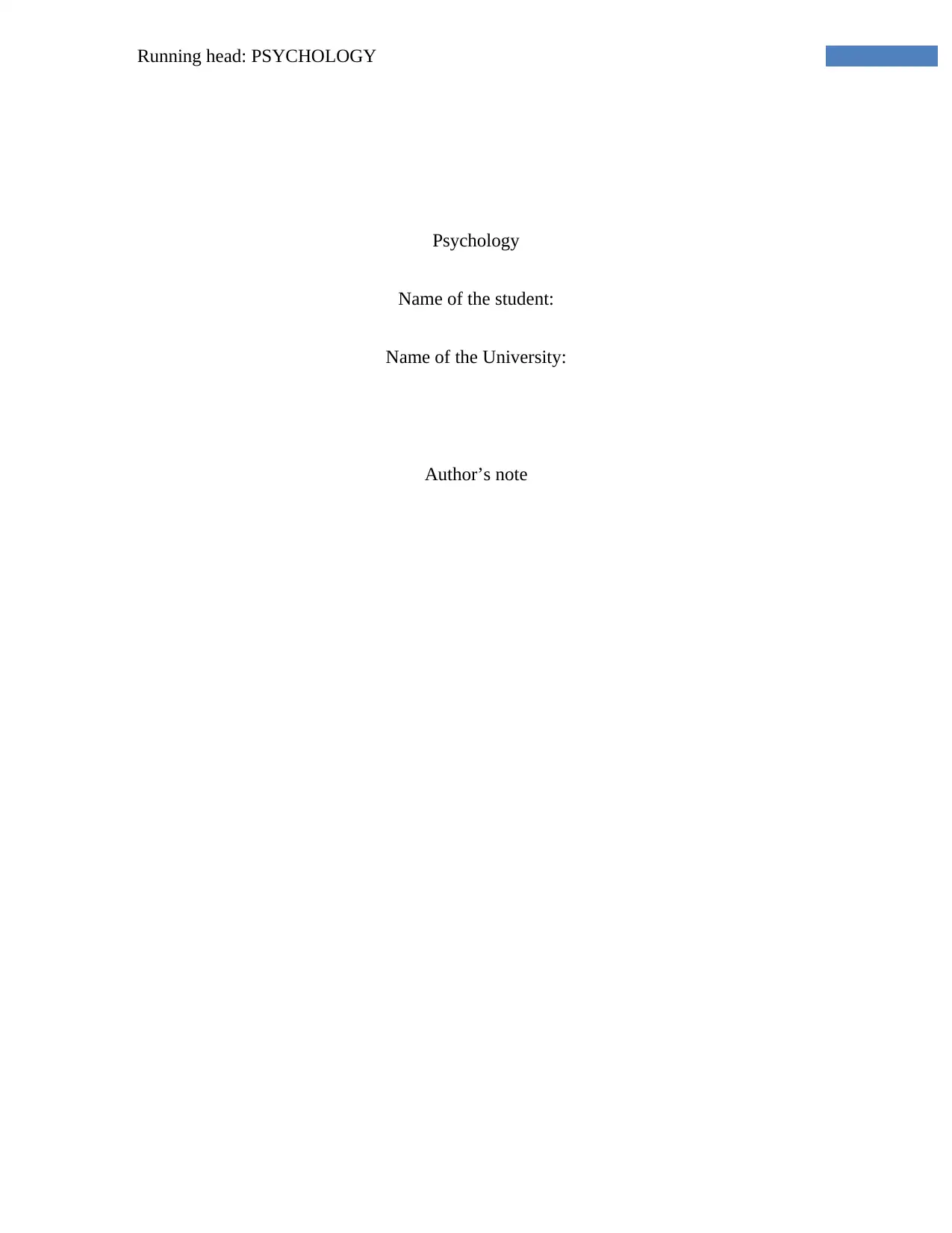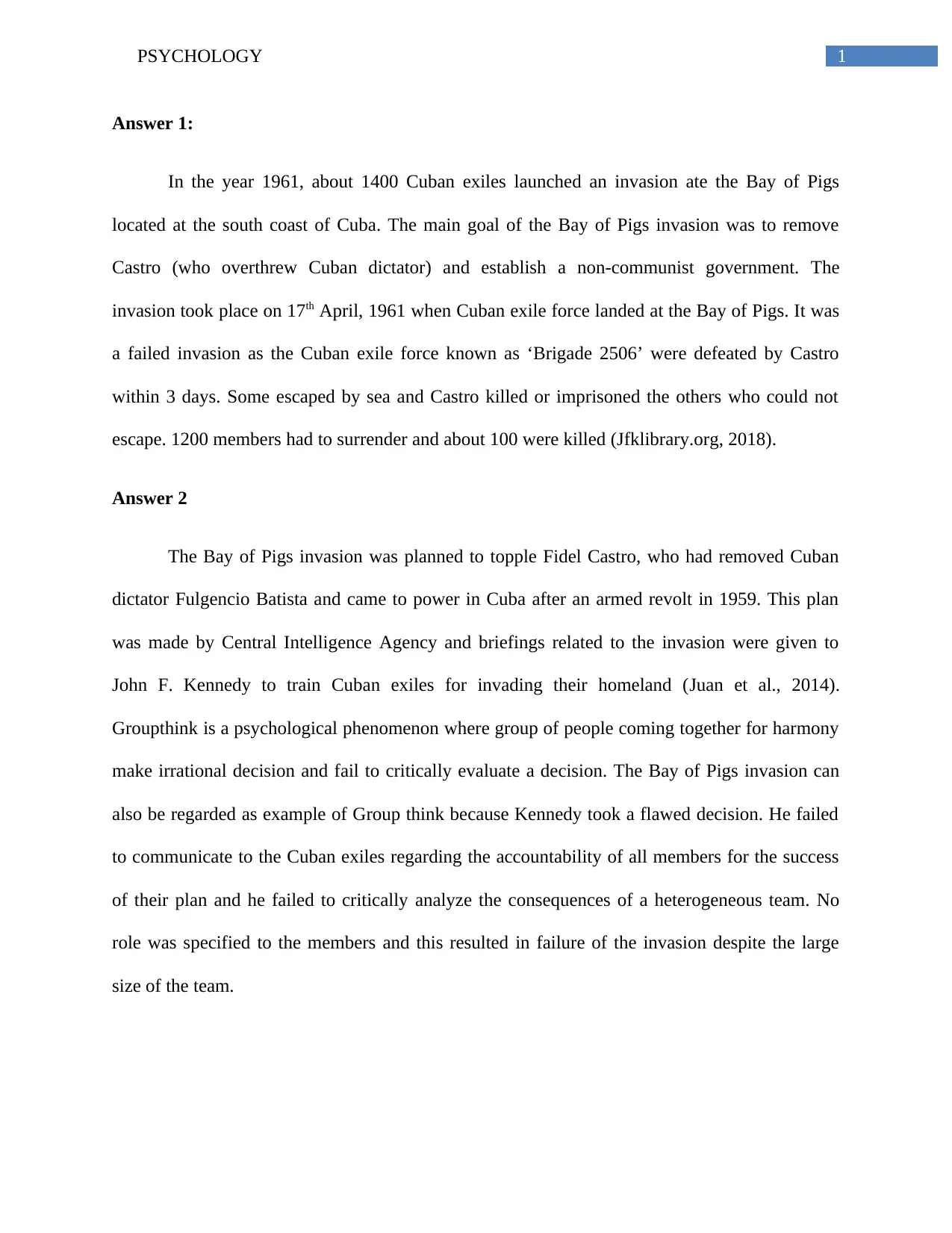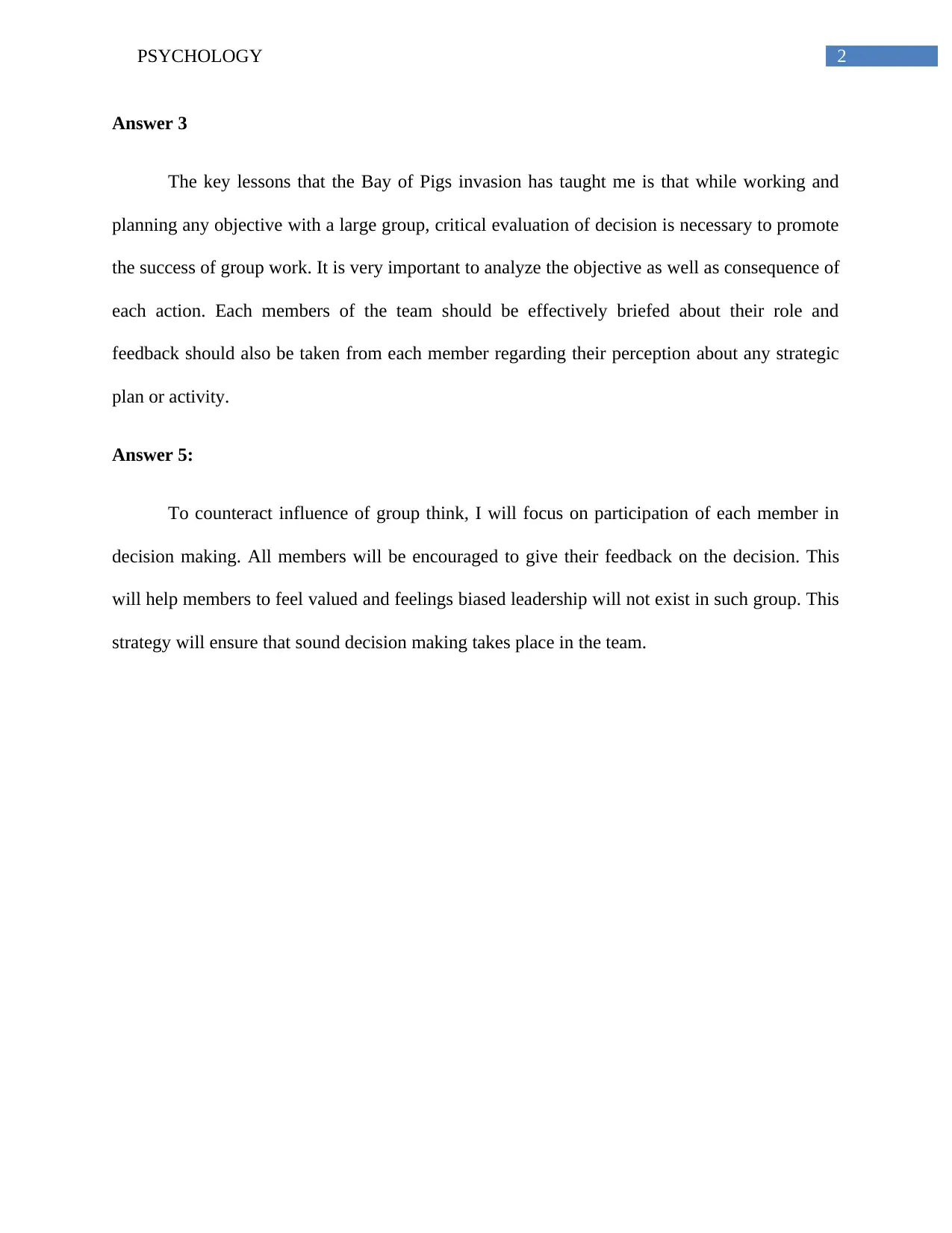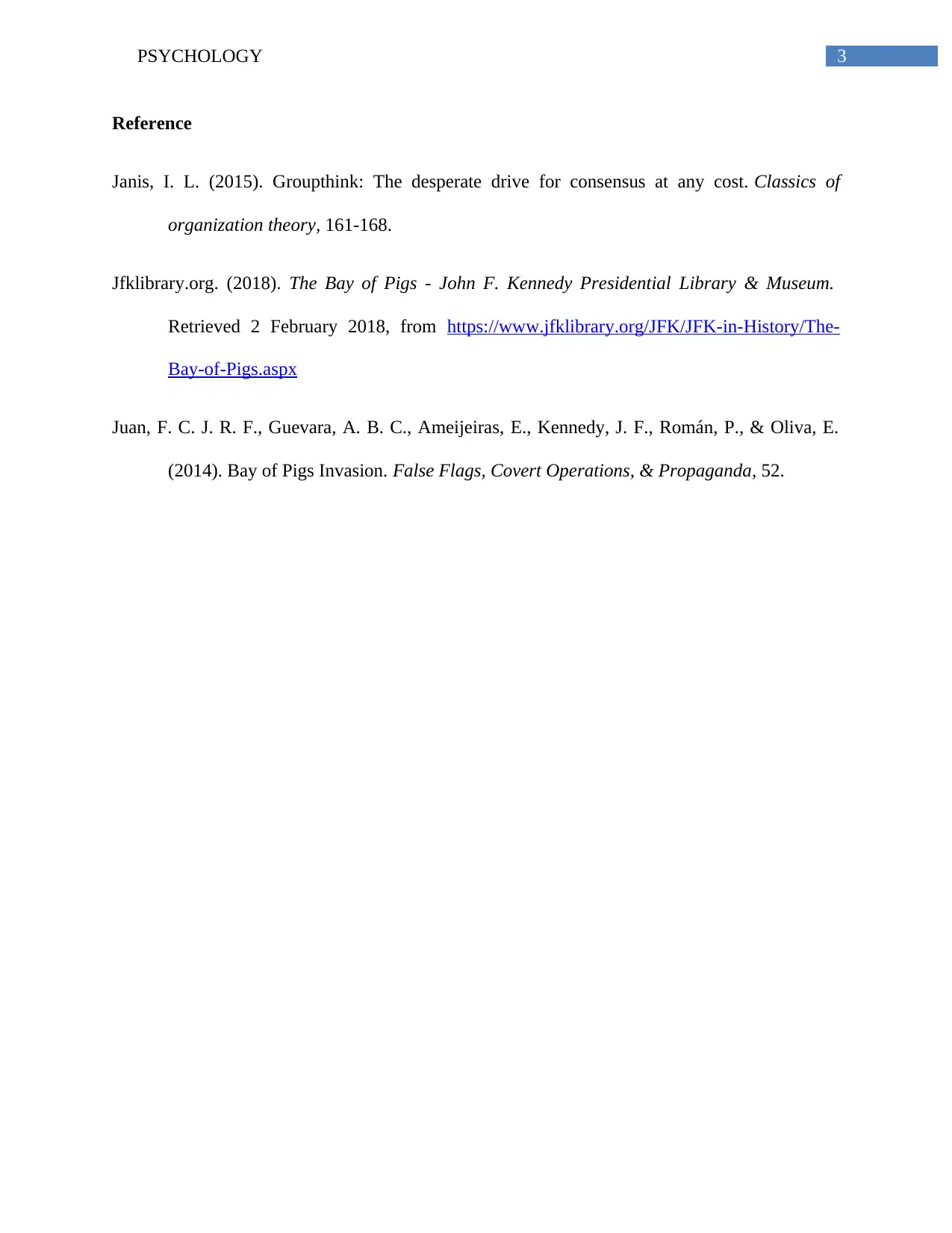Applying Psychology: Groupthink Analysis of the Bay of Pigs Invasion
VerifiedAdded on 2023/06/15
|4
|587
|340
Essay
AI Summary
This essay provides a detailed analysis of the Bay of Pigs invasion of 1961, exploring the event through the psychological concept of groupthink. It begins by outlining the historical context of the invasion, including the involvement of Cuban exiles and the aim to overthrow Fidel Castro's communist government. The essay then delves into how the Bay of Pigs invasion serves as a case study for groupthink, highlighting flawed decision-making processes and the failure to critically evaluate the plan's consequences. Furthermore, it discusses key lessons learned from the event, emphasizing the importance of critical evaluation, clear role definition, and feedback mechanisms in team settings. The essay concludes by suggesting strategies to counteract groupthink, such as promoting inclusive participation and encouraging diverse perspectives in decision-making to ensure sound outcomes.
1 out of 4






![[object Object]](/_next/static/media/star-bottom.7253800d.svg)